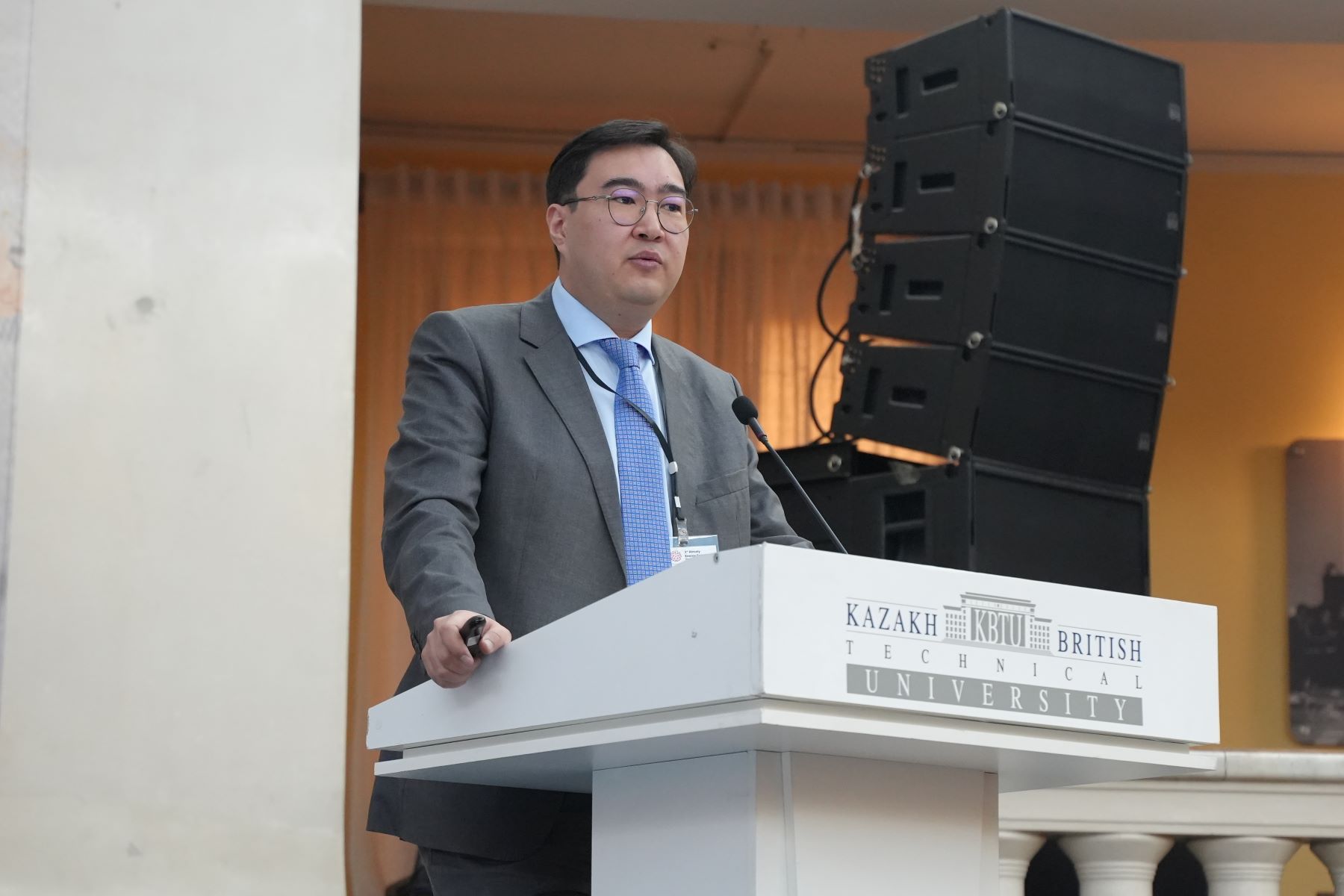The Almaty Energy Forum at KBTU: how to attract investments in renewable energy projects?

From November 6th to 8th, representatives of Central Asian Ministries, experts from the energy industry, as well as international organizations – the United Nations Economic Commission for Europe (UNECE), the Economic and Social Commission for Asia and the Pacific (ESCAP), and the United Nations Development Programme (UNDP) – gathered at KBTU to discuss accelerating the energy transition in Central Asian countries. The dialogue participants intend to promote regional cooperation, provide support for technical capacity, and assist Central Asian countries in implementing innovations, modernizing their regional infrastructure, and building sustainable energy systems that are safe, accessible, and achieve zero emissions. Representatives from UNECE, UNDP, the Ministry of Energy of the Republic of Kazakhstan, and KBTU spoke at the Forum’s opening on November 6th, highlighting key issues regarding the energy transition that need to be addressed.

Achieving carbon-neutral and sustainable energy systems by the middle of the century is a common goal throughout the UNECE region. Actions are being taken to achieve a region-wide decarbonization; however, existing climate models indicate that nationally determined contributions (NDCs) do not align with the collective global goal of limiting global warming to 1.5-2 degrees Celsius. Dario Liguti, Director of the Sustainable Energy Department at UNECE, shared that the organization is currently developing normative instruments to help countries design and build sustainable energy systems:
“We recently relaunched the carbon neutrality toolkit, which outlines technological and policy options to achieve zero emissions. This toolkit is specifically designed for policy-making bodies to assist them in making informed decisions on implementing the Sustainable Development Agenda for the period up to 2030 and the Paris Agreement. Through this Platform, we help countries develop sustainable and carbon-neutral energy systems based on three main principles: ‘energy security’, ‘affordability’, and ‘ecological sustainability’.”
Maratbek Gabdullin, the Rector of the Kazakhstan-British Technical University (KBTU), emphasized the significance of the event for the university and its ongoing research activities. Solar panels are being produced by the KBTU School of Materials Science and Green Technologies for academic and practical research.
“It is also important to note that in 2023, we started working with the ‘Cavendish’ laboratory at the University of Cambridge on new superconducting materials under the guidance of leading global scientists. We also continue to work with UNDP on the development and promotion of renewable energy issues. Therefore, the outcomes of the Forum will allow us to develop a set of recommendations and formulate a further action plan aimed at strengthening regional cooperation and collaboration to create sustainable energy systems in the Central Asian region,” added the rector of KBTU.

During the panel discussion on “Unlocking Central Asia’s Key Raw Material Potential,” Yerlan Galiyev, Chairman of the Board of the National Geological Survey, presented a report titled “Sustainable Exploration and Development of Key Raw Materials”:
“Kazakhstan is among the world’s leading countries in terms of the richness of its mineral resources. The mineral resource base of Kazakhstan consists of deposits of fuel and energy complex minerals (hydrocarbons, coal, uranium), ferrous, non-ferrous, noble, rare metals, non-metallic minerals, groundwater, and other minerals. In total, state accounting is conducted for 103 types of useful minerals. The state balance includes over 8,000 deposits, among them 326 hydrocarbon deposits, 920 solid minerals, over 3,000 common minerals, and about 4,000 groundwater deposits,” stated the Chairman of the Board of the National Geological Survey, Yerlan Galiyev.
According to Galiyev, the main state body in the field of geology and subsoil exploration is the Committee of Geology of the Ministry of Industry and Infrastructure Development of the Republic of Kazakhstan, which is a 100% shareholder of the National Geological Survey. On November 7th, discussions continued on topics such as “Unlocking Central Asia’s Critical Raw Material Resources,” “Developing Effective Policy Frameworks for Waste Reduction and Methane Emissions,” “Human Capital Development for a Fair Energy Transition in Central Asia,” and “Exchange of Lessons Learned and Best Practices in Developing Roadmaps for Sustainable Energy for All 7.”
This year, the event brought together politicians from the energy ministries of Kazakhstan, Tajikistan, Uzbekistan, Kyrgyzstan, representatives of international organizations, the financial sector, science, and academia.